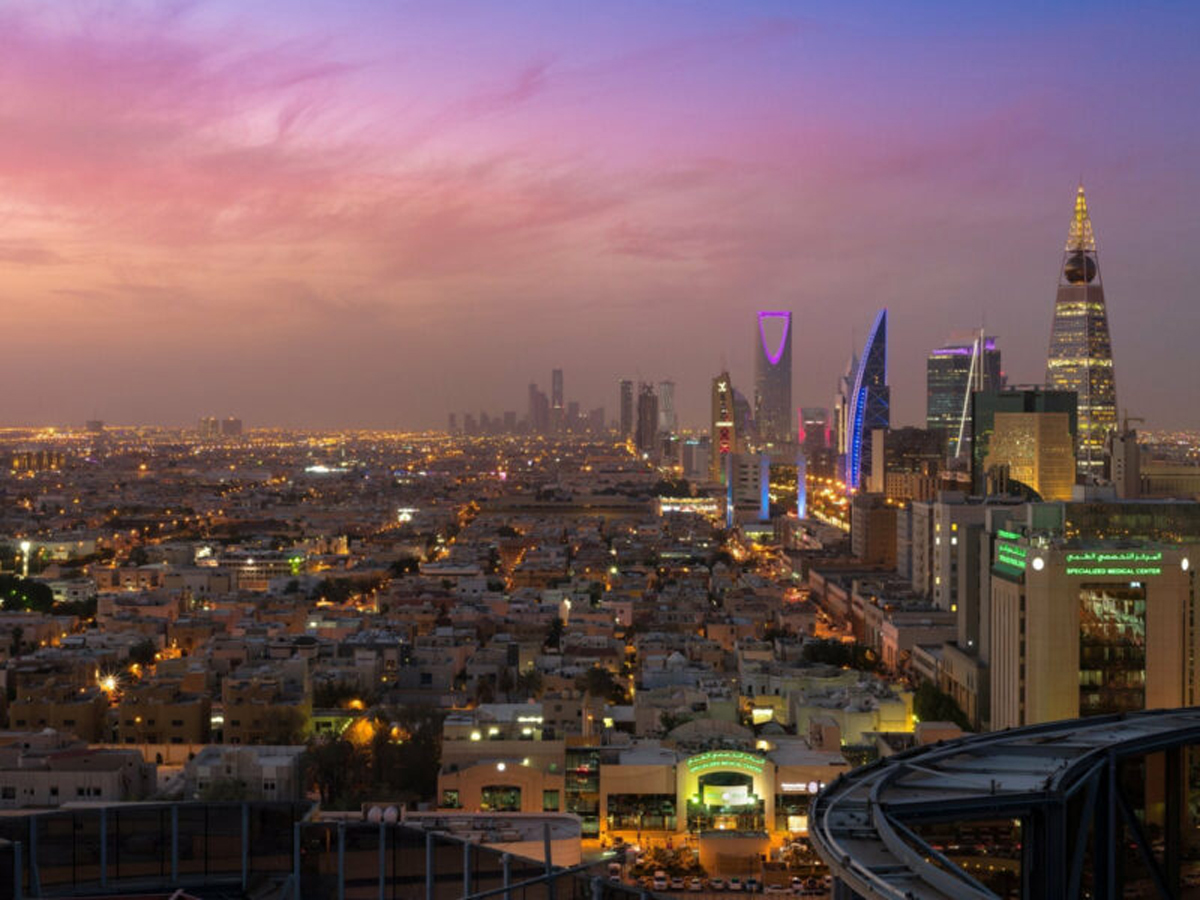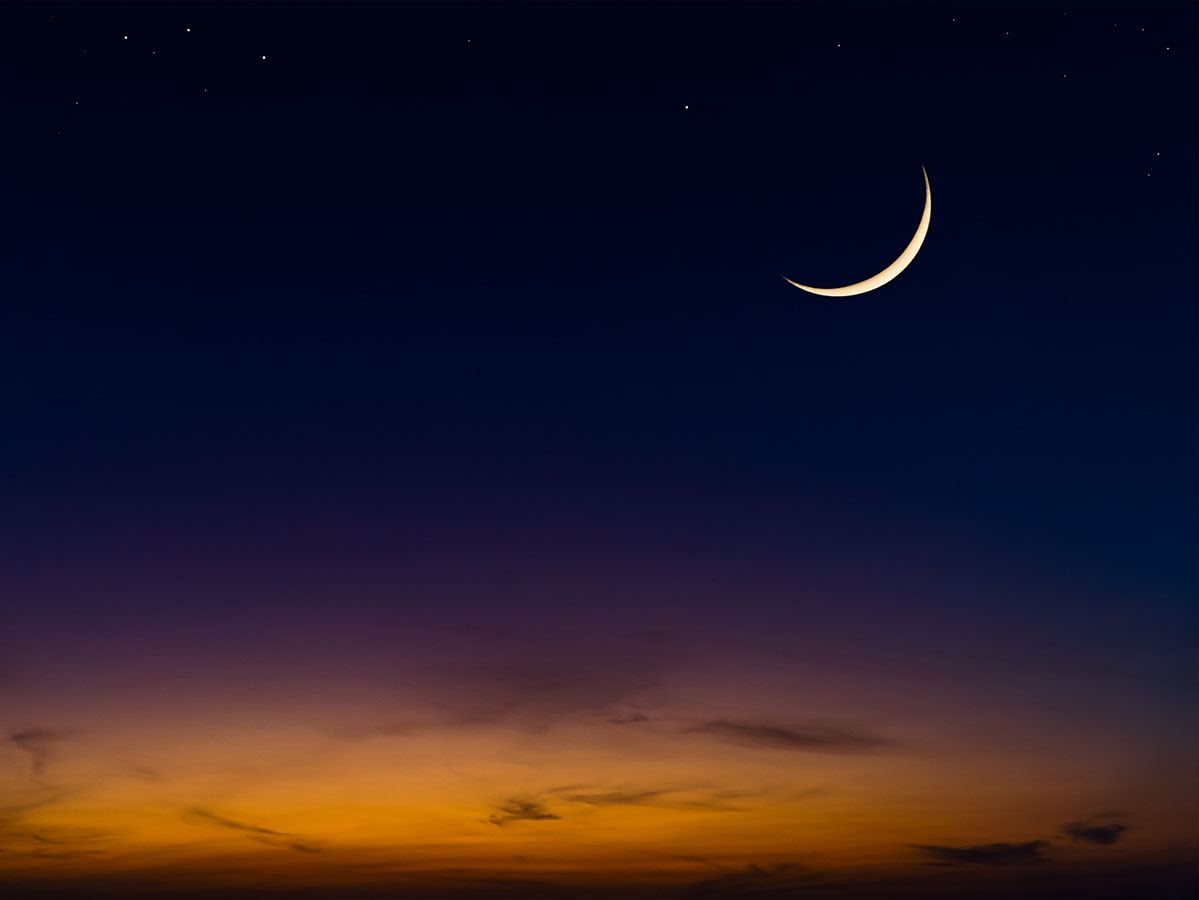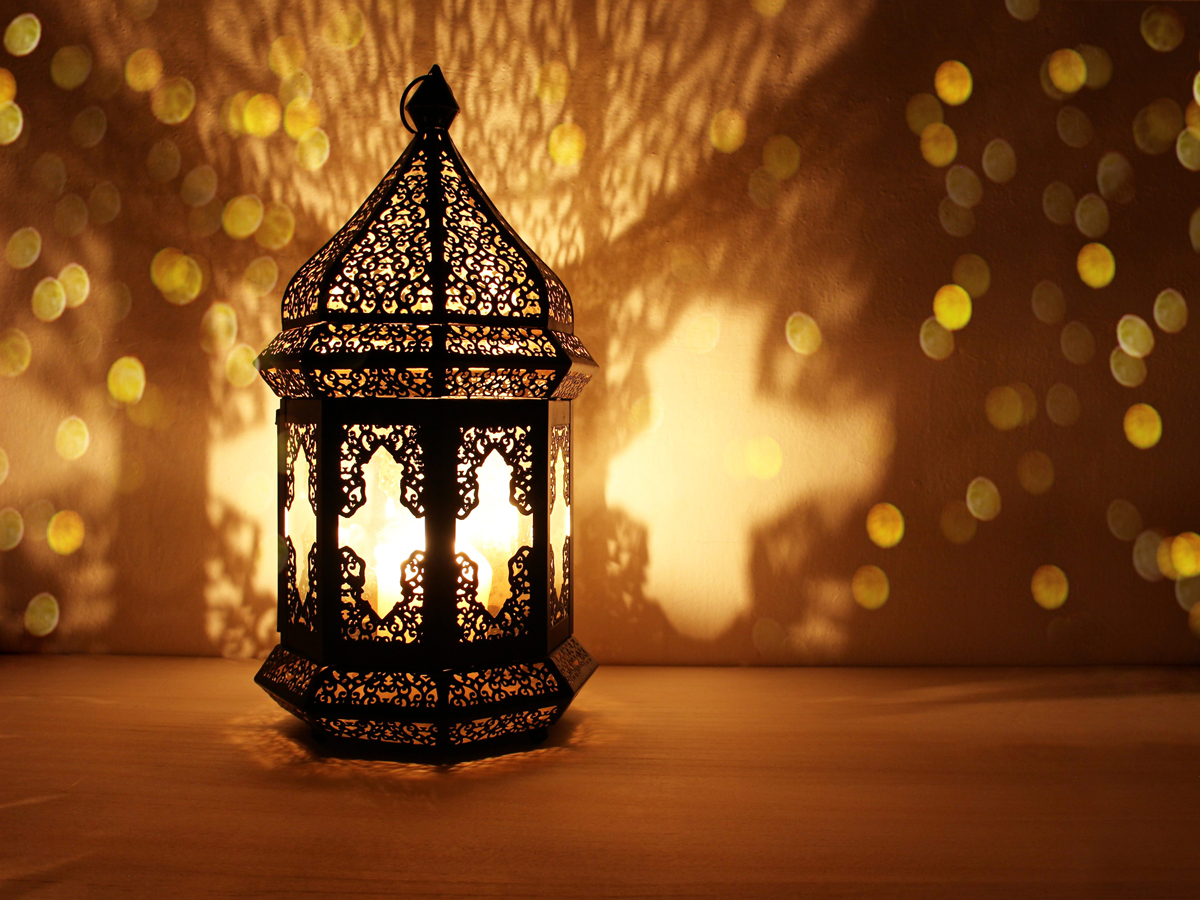Curious about celebrating Ramadan in Saudi Arabia? Ramadan is the holiest month of the year for Muslims, so Ramadan in the Kingdom is a important time. In 2022, it’s expected to start on Friday April 1, though that will be confirmed the night before.
Ramadan starts when the crescent moon (called hilal) coincides with the astronomical new moon.
The exact date is determined by the moon sighting committee in Saudi Arabia. This is a group of astronomers and Muslim advisors who gather together to look for the new crescent moon. When the moon is sighted using advanced equipment, Ramadan starts the next day.
What is Ramadan?
Ramadan is the ninth month in the Hijiri calendar and is classed as the holiest month because it is believed that the Quran was revealed to the Prophet Mohammed (PBUH) during this period.
Muslims don’t consume any food or drinks between dawn and sunset during Ramadan – timings marked by the morning fajr prayers and the evening maghrib prayers. Once maghrib prayers start, the fast can be broken.
Prophet Mohammed (PBUH) broke his fast with water and a date, and most people break their fast in the same way even now to respect the Sunnah (practices of the Prophet), before moving on to a light meal. A break in eating is then recommended, so the stomach doesn’t get too full, too quickly, before having another light meal.
As well as abstaining from food, Muslims use the month for inner reflection, to focus on charity and being grateful for what they have.
On the day before the 30th day of Ramadan, the Moon Sighting Committee reconvene to look for the new crescent moon. If they see it, the following day will mark the beginning of Eid al-Fitr, which marks the end of the month-long dawn-to-sunset fasting of Ramadan.
Are there changes for 2022 Ramadan in Saudi Arabia due to COVID-19?

The Kingdom recently announced the lifting of many COVID restrictions in March 2022 which will impact Ramadan in Saudi Arabia. As per the most recent update, physical distancing rules no longer apply. The latest Saudi COVID-19 restriction lift includes “suspending the application of social distancing measures in all open and closed places, activities, and events”. There will be no social distancing measures in the Grand Holy Mosque, the Prophet’s Holy Mosque and mosques, but masks must still be worn, according to the announcement.
Why is fasting important during Ramadan?
It’s an exercise in self-restraint and is intended to remind people of those less fortunate and to give those who observe the fast a chance to detoxify the body and mind. It gives people the opportunity to focus solely on one’s faith. Fasting is one of the five pillars of Islam, alongside daily prayer, giving to charity, the declaration of faith and the hajj pilgrimage to Makkah.
As mentioned above, fasting lasts from dawn until sunset. The fast is broken with iftar and is prepared for with suhoor, a pre-dawn meal to get people through the day. Non-muslims may eat during the day but in a concealed area.
You might also like: Saudi Arabia public holidays for 2022
Are there any exceptions where it is acceptable to publicly break the fast?
People who suffer from medical conditions, women who are pregnant or menstruating are exempted from fasting. However, the same rules apply to them as well – not to eat or drink in public places and to use designated screened-off areas in public that are well hidden from view.
What is iftar and suhoor?
Iftar is the meal to break the fast after sunset. Typically, people will enjoy dates, dried apricots and juices, before heading to evening prayer. After that, large meals are the norm, usually with family and friends.
Suhoor is a meal taken just before sunrise, before the day of fasting starts. Many hotels host smaller buffets, traditional activities and more to celebrate until the hours of the morning during Ramadan in Saudi Arabia.
Are restaurants and cafés open during the day during Ramadan in Saudi Arabia?
Restaurants will be open later in the day during Ramadan in Saudi Arabia. Buffets in hotels and restaurants are usually whipping up traditional Saudi food and bites to break the fast, along with dates, juices, and more.
What are working hours during Ramadan in Saudi Arabia?
The Ministry of Human Resources states that the official number of working hours is five – with work starting at 10am and finishing at 3pm.
Are school hours different during Ramadan in Saudi Arabia?
Yes, but the timings will likely differ from school to school.
Are shops and malls open?

Malls will remain open 24 hours. Supermarkets and pharmacies will remain open throughout Ramadan in Saudi Arabia.
What is the significance of charity during Ramadan?
Charity is a very important part of Islam and is even more significant during Ramadan. However, you don’t have to be a Muslim to give during Ramadan. There are plenty of charitable initiatives that can be contributed to.
What is Eid and why are there two?
Eid al-Fitr and Eid al-Adha are the main two annual Islamic celebrations. Eid al-Fitr translates as the “festival of breaking the fast” and happens immediately after Ramadan. Charity is known as zakat, one of the five pillars of Islam, and is particularly significant during Ramadan and the Eids.
Eid al-Adha is the second celebration of the year and translates as the “festival of sacrifice”. And that’s just what it is as, traditionally during this time, animals like sheep and goats are slaughtered. It’s approximately 70 days after the end of Ramadan and marks the end of the Hajj, the annual pilgrimage to Makkah (another pillar of Islam).
Useful phrases
Whether you’re marking Ramadan in Saudi Arabia or around the world, these are popular phrases to use:
Ramadan Mubarak = Blessed Ramadan
Ramadan Kareem = Happy / generous Ramadan
Iftar shahy = Have a good iftar
Mubarak aleik al shahr = May you get the blessings of the month
Kil aam wa inta fee kheir = May each year pass and you be well









